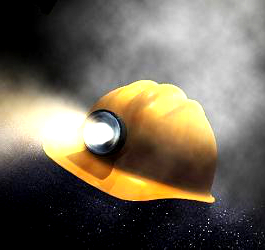Black lung inquiry fires up
 A senate inquiry into the rise of black lung in Queensland coal miners begins this week.
A senate inquiry into the rise of black lung in Queensland coal miners begins this week.
The first of two public hearings into the state’s mine worker health monitoring scheme is now underway.
On the eve of the hearing, the CFMEU highlighted the need for a comprehensive review.
The union says up to 1,000 coal miners could have black lung, or coal miner's pneumoconiosis, which is caused by long-term inhalation of coal dust and can be fatal.
“We're projecting that we're going to have 16 per cent of current and retired coal mine workers with pneumoconiosis,” says Jason Hill, the CFMEU's industry health and safety representative.
“The main point [of the inquiry] is to get a system in place so that we can detect early cases of pneumoconiosis, and protect the workers.
“We need to fix up the failures that have never been fixed up.”
But the senate inquiry is expected to focus largely on on health assessments, not actual dust exposure in coal mines.
Still, Queensland Resources Council chief executive Michael Roche has dubbed the union’s claims, “irresponsible scaremongering”.
“Without foundation, the union is putting fear into thousands of coal workers... on what basis?”
The union rep says this is exactly the sort of obfuscation that the inquiry will clear up.
“There’s been a lot of resistance with the highlighting of pneumoconiosis,” he said.
“You’ve got a couple of coal mines where the boys raised issues that they felt their health was at risk, and they withdrew themselves from the mines until their x-rays were read by a specialist, and these fellows were threatened to be sacked… and humiliated in front of other people.
“With the casualisation and contractors working in the industry, management do source blokes to work in dusty areas.
“You’ve got a mine like Grovenor [Anglo American] that’s had a directive slapped on them, they had blokes working in the returns, Grasstree had blokes working in the returns of active mining panels, which is a dusty environment, it shouldn’t happen…If you’re [a company] going to exceed your dust limit, people shouldn’t have to work anywhere.”







 Print
Print